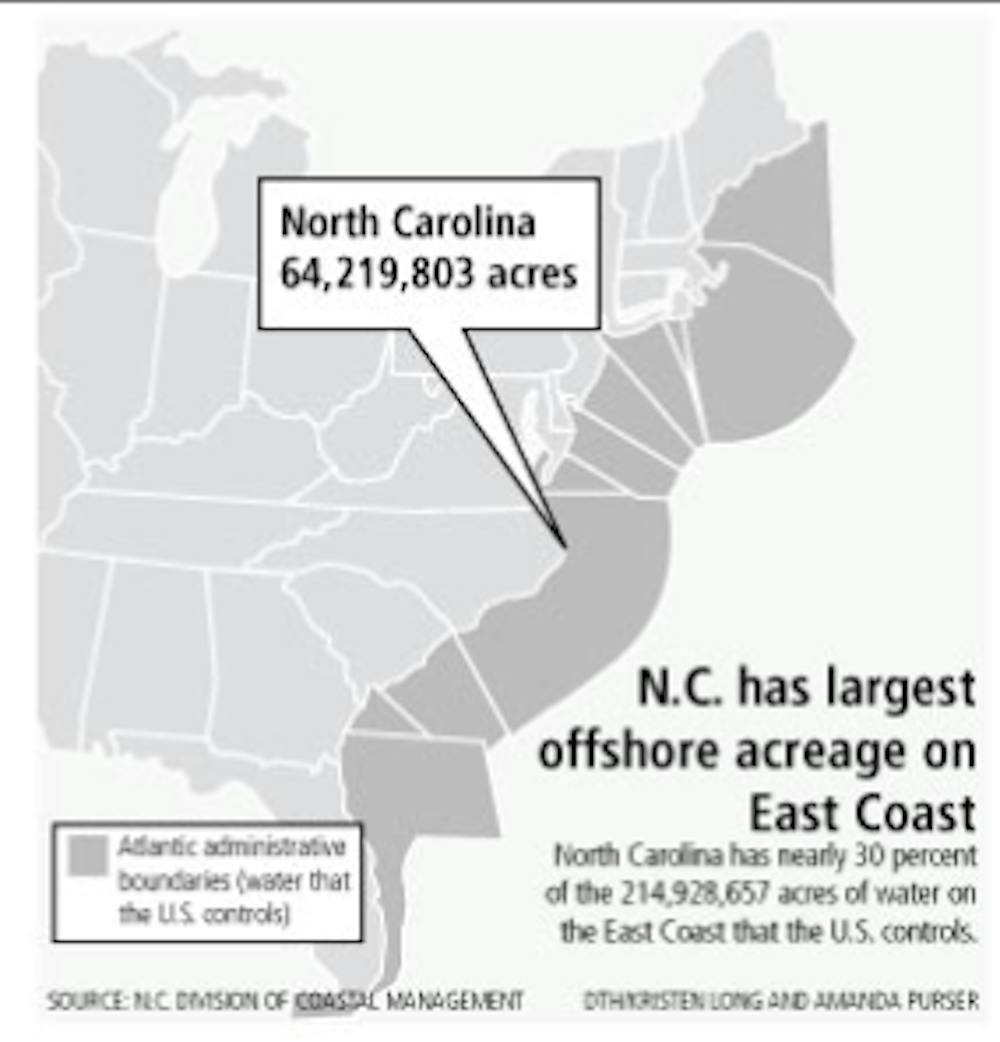The land off the coast of North Carolina potentially has trillions of cubic feet of natural gas and billions of barrels of oil resources that could be exploited in the coming years.
President Barack Obama announced at the end of last month that he is lifting the moratorium on offshore drilling along the east coast, and North Carolina has larger offshore acreage of all of those states.
But no one knows exactly how much oil and gas might be present or how offshore drilling will take shape along the state’s coast, said Jeff Warren, a coastal hazards specialist from the N.C. Division of Coastal Management.
A 2009 report by the Southeast Energy Efficiency Alliance estimated that North Carolina’s outer continental shelf contained 1.74 billion barrels of oil and 15.29 trillion cubic feet of natural gas.
“It’s going to take a while for North Carolina to be comfortable with exploration,” said Lincoln Pratson, an environment and energy professor at Duke University.
Currently, offshore drilling is regulated by the federal government through the Minerals Management Service in the U.S. Department of the Interior.
The agency leases rights to drill according to provisions in its five-year plans. Since the current plan expires in 2012, none of the state’s offshore acreage could be leased until then.
But some environmental groups are less than thrilled at the idea of drilling off the state’s coast.
Molly Diggins, director of the N.C. Sierra Club, said the best areas for drilling are also prime areas for fisheries and offshore wind power.
“Going forward, North Carolina might need to make a choice,” Diggins said.
Pratson said just the search for oil and natural gas would also have an environmental impact.
Sonar used in the search for resources could disturb marine mammals, and drilling could result in spills, he said.
But he said drilling would be so far offshore that spills would likely not reach the beach. Also, fish tend to thrive around oil and natural gas drilling structures.
“The oil and gas industry is familiar with operating in these areas and has a pretty good safety record,” he said.
Connie Nelson, communications and public relations director for the Wilmington/Cape Fear Coast Convention and Visitors Bureau, said her organization would need more information before they would know how drilling might affect North Carolina coastal areas and tourism.
Pratson also said the estimated amount of oil and natural gas off the Atlantic seaboard is equivalent to the amount used by the country in about 12 to 18 months.
“This is not going to make us energy-independent,” he said
But more natural gas in the market could mean lower prices nationally, said David Trusty, a spokesman for the Charlotte-based utility Piedmont Natural Gas.
Tom Williams, director of external relations for the N.C. utility company Duke Energy, also said the move toward drilling is a positive development.
“It shows a sense of compromise on climate change,” he said.
Contact the State & National Editor at stntdesk@unc.edu.
Effects of drilling of N.C. coast unclear

DTH/ Kristen Long and Amanda Purser


